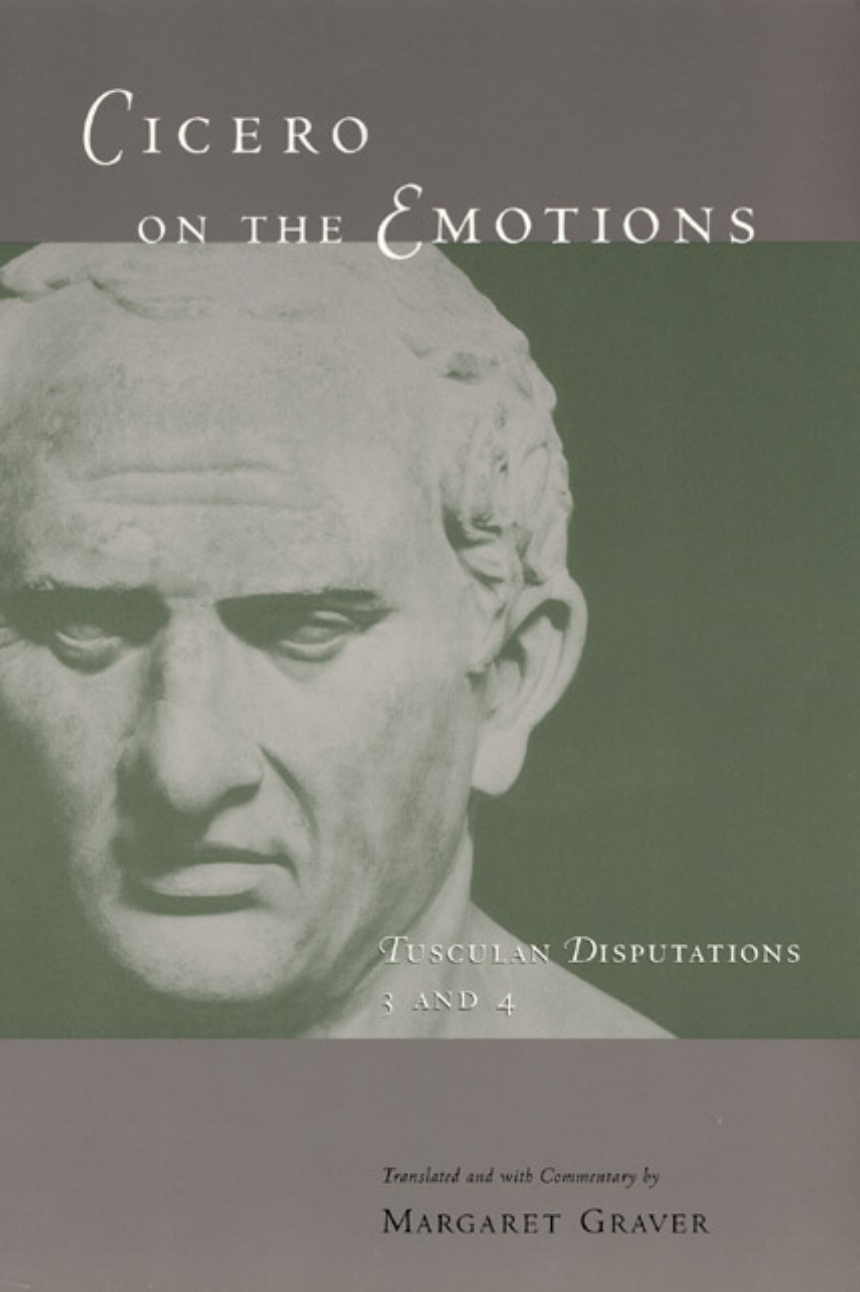Cicero on the Emotions
Tusculan Disputations 3 and 4
The third and fourth books of Cicero’s Tusculan Disputations deal with the nature and management of human emotion: first grief, then the emotions in general. In lively and accessible style, Cicero presents the insights of Greek philosophers on the subject, reporting the views of Epicureans and Peripatetics and giving a detailed account of the Stoic position, which he himself favors for its close reasoning and moral earnestness. Both the specialist and the general reader will be fascinated by the Stoics’ analysis of the causes of grief, their classification of emotions by genus and species, their lists of oddly named character flaws, and by the philosophical debate that develops over the utility of anger in politics and war.
Margaret Graver’s elegant and idiomatic translation makes Cicero’s work accessible not just to classicists but to anyone interested in ancient philosophy and psychotherapy or in the philosophy of emotion. The accompanying commentary explains the philosophical concepts discussed in the text and supplies many helpful parallels from Greek sources.
Margaret Graver’s elegant and idiomatic translation makes Cicero’s work accessible not just to classicists but to anyone interested in ancient philosophy and psychotherapy or in the philosophy of emotion. The accompanying commentary explains the philosophical concepts discussed in the text and supplies many helpful parallels from Greek sources.
Reviews
Table of Contents
Preface
Abbreviations and Matters of Citation
Introduction
About the Translation
A Note on the Text
Tusculan Disputations
Book 3
Book 4
Commentary
Book 3: On Grief
Book 4: On Emotions
Appendixes: Sources for Cicero’s Account
Appendix A. Crantor and the Consolatory Tradition
Appendix B. Epicurus and the Cyrenaics
Appendix C. The Early Stoics and Chrysippus
Appendix D. Posidonius
Bibliography
Index Locorum
General Index
Abbreviations and Matters of Citation
Introduction
About the Translation
A Note on the Text
Tusculan Disputations
Book 3
Book 4
Commentary
Book 3: On Grief
Book 4: On Emotions
Appendixes: Sources for Cicero’s Account
Appendix A. Crantor and the Consolatory Tradition
Appendix B. Epicurus and the Cyrenaics
Appendix C. The Early Stoics and Chrysippus
Appendix D. Posidonius
Bibliography
Index Locorum
General Index
